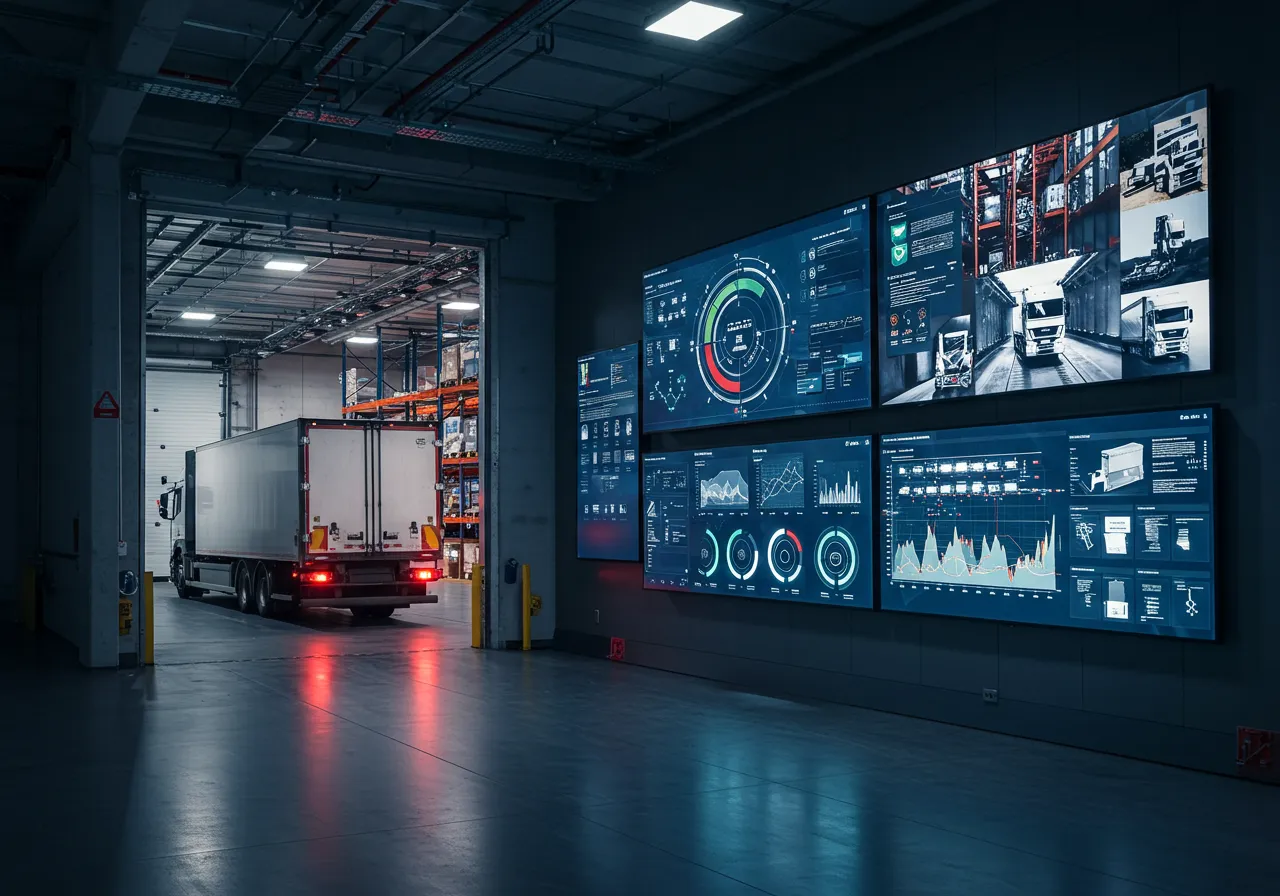
Transform Warehouse Efficiency with Intralogistics
Harness advanced intralogistics software to automate workflows, optimize inventory management, and reduce operational costs by up to 30%. Improve accuracy with real-time data insights and boost productivity by 40%.
Streamlined Warehouse Operations


Real-Time Supply Chain Visibility
Tailored Logistics Solutions
- Warehouse Management
- Inventory Optimization
- Order Fulfillment
- Transport Coordination
- Supply Chain Analytics
Comprehensive Software Capabilities
- Automation Tools: Leverage robotic process automation to reduce manual tasks by up to 70%. This includes automated order picking and sorting systems, which enhance throughput and accuracy in high-volume warehouses.
- Process Efficiency: Utilize lean logistics methodologies to streamline operations, reducing cycle times by 40% and minimizing waste in material handling processes. This approach ensures quicker response times to market demands.
- Predictive Data Analytics: Implement predictive analytics to forecast demand with 95% accuracy, optimizing stock levels and minimizing inventory holding costs. This capability enables proactive supply chain adjustments based on market trends.
- Customizable Reporting Tools: Access real-time insights through customizable dashboards that provide key performance metrics, enabling data-driven decision-making and improving operational transparency.
- Supply Chain Resilience: Enhance your supply chain's resilience by integrating AI-driven insights that predict potential disruptions and suggest alternative routing strategies, ensuring continuity in service delivery.
Key Features
Automated Processes
Optimize logistics workflows by automating repetitive tasks like data entry and inventory counts, reducing error rates by up to 30%. This streamlines operations, allowing staff to focus on higher-value activities, ultimately enhancing productivity.
Real-Time Monitoring
Utilize advanced telemetry to monitor fleet movements with up-to-the-minute updates. This ensures immediate response to changes in route conditions, potentially decreasing delivery times by 15% and improving customer satisfaction with timely notifications.
Data Integration
Integrate disparate data sources, such as ERP, CRM, and WMS, using a centralized platform. This integration provides a holistic view of operations, leading to faster decision-making and reducing data silos, enhancing cross-functional collaboration by 20%.
Predictive Analytics
Leverage predictive analytics to forecast demand fluctuations and optimize inventory levels. By analyzing historical data, companies can anticipate trends, minimizing stockouts by 25% and ensuring that resources are allocated efficiently.
Enhance Strategic Decision-Making

Customer Benefits
- Increased Productivity: Implementing synchronized logistics workflows can boost warehouse output by up to 30%. For example, using automated sorting systems speeds up package handling, allowing your team to focus on strategic tasks such as quality control and custom packaging.
- Reduced Costs: By employing cross-docking techniques, businesses can reduce storage time and costs by 20%. Real-world applications include a retail chain that minimized warehousing expenses by directly transferring goods from inbound to outbound transport, cutting inventory holding costs significantly.
- Enhanced Accuracy in Order Processing: Utilizing RFID technology for inventory tracking ensures over 95% accuracy in stock levels. This results in fewer errors in order fulfillment, as demonstrated by a case where a manufacturing company reduced order discrepancies by integrating RFID scanners with their existing ERP systems.
- Streamlined Delivery: Implementing advanced route optimization software can reduce delivery times by 25%. Logistics companies have reported significant improvements in customer satisfaction by consistently meeting tighter delivery windows without increasing fleet size.
- Sustainability Initiatives: Leveraging eco-efficient transport modes like electric vehicles can decrease carbon emissions by up to 40%. Companies adopting green logistics practices are not only reducing their environmental footprint but also attracting eco-conscious clients.
Algorithmic Precision in Logistics
Optimize Network Coordination
You may also be interested in
Maximize your potential with our seamless, end-to-end supply chain solutions.

Automation
Leverage state-of-the-art automation to optimize logistics, boosting operational accuracy by up to 30% while minimizing human error. Enhance supply chain agility and cut transit times significantly.

EDI
Enhance accuracy and speed in transactions by integrating EDI, reducing manual errors by up to 90%. Elevate supplier and partner interactions with seamless data exchange, driving efficiency across your logistics network.

Customer Relationship Management (CRM) Integration
Transform your logistics with seamless CRM integration. Improve customer interaction efficiency by 30%, increase order accuracy, and reduce response times, leading to higher customer satisfaction.